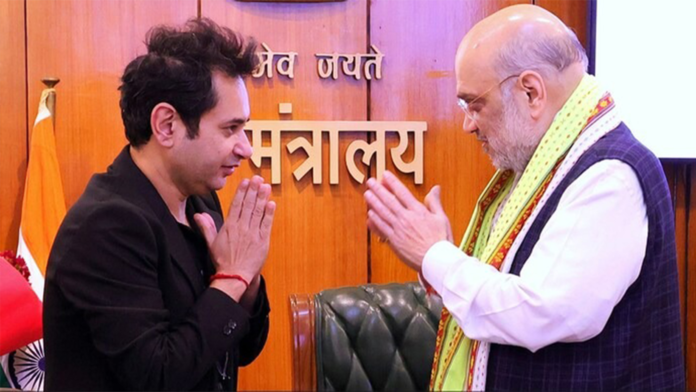The political atmosphere in Tripura has grown tense following serious allegations by the sacked BJP vice president, Patal Kanya Jamatia. On Tuesday, she accused her former party of misleading the indigenous people of the state by leveraging the influence of Pradyot Kishore Manikya Debbarma, the founder of the Tipra Motha Party. According to Jamatia, the BJP and Debbarma have used the proposed Tiprasa Accord as a tool to exploit the sentiments of the indigenous communities, particularly ahead of critical political moments.
Jamatia expressed her concerns during a public appearance, where she called out what she described as a calculated strategy to manipulate the aspirations of the indigenous population. She alleged that the BJP had forged an alliance of convenience with Debbarma, using promises of the Tiprasa Accord to gain political mileage while failing to deliver on the core demands of the people. “The indigenous people of Tripura deserve transparency and respect, not empty assurances,” she said, emphasizing her disappointment in both the BJP and the Tipra Motha Party leadership.
The Tiprasa Accord, as conceptualized, was meant to address the longstanding issues faced by the indigenous communities of Tripura, including land rights, cultural preservation, and self-governance. However, Jamatia claimed that the accord has been reduced to a political gimmick. She pointed out that despite repeated promises, no concrete steps have been taken to implement the provisions of the accord or to genuinely engage with the indigenous population on their grievances. She accused the BJP of using the accord as a façade to secure votes, only to abandon the commitments post-elections.
Jamatia also criticized Pradyot Debbarma for allegedly aligning with the BJP’s agenda, despite presenting himself as a champion of indigenous rights. She stated that Debbarma’s actions have not only undermined the credibility of the Tipra Motha Party but have also disillusioned many indigenous supporters who had hoped for meaningful change. “Pradyot’s silence on the BJP’s failures and his collaboration with them raise serious questions about his intentions,” she remarked, urging the indigenous communities to be vigilant against political exploitation.
In response to these allegations, representatives from both the BJP and the Tipra Motha Party have issued statements defending their actions. A BJP spokesperson dismissed Jamatia’s claims as baseless and an attempt to gain attention following her removal from the party. “The BJP remains committed to the development and welfare of all communities in Tripura, including the indigenous population,” the spokesperson asserted, pointing to ongoing infrastructure projects and welfare schemes as evidence of their dedication.
Meanwhile, Pradyot Kishore Manikya Debbarma has yet to directly address Jamatia’s accusations. However, sources close to him suggest that he views the claims as politically motivated and an attempt to create divisions within the indigenous movement. Supporters of the Tipra Motha Party have highlighted Debbarma’s consistent advocacy for indigenous rights, arguing that his efforts have brought national attention to the challenges faced by Tripura’s indigenous communities.
Jamatia’s accusations have sparked widespread discussions among political observers and the public. Some view her statements as a reflection of growing dissatisfaction within the BJP’s ranks, particularly among leaders from indigenous backgrounds. Others see it as a strategic move to shift political allegiances and gain traction among voters disillusioned by the current leadership.
The controversy comes at a time when Tripura’s political landscape is undergoing significant shifts. The state has witnessed a surge in demands for greater autonomy and recognition of indigenous rights, driven by both grassroots movements and political leaders. As the elections draw closer, parties are under increasing pressure to address these demands and prove their commitment to the indigenous population.
Amid the political turmoil, the indigenous communities of Tripura find themselves at a crossroads. Many are questioning whether their aspirations are being genuinely represented or merely used as a stepping stone for political gains. Jamatia’s revelations have added to the sense of uncertainty, prompting calls for greater accountability and transparency from all political stakeholders.
The coming months are expected to be critical in shaping the future of Tripura’s indigenous movement. As the debate over the Tiprasa Accord and the actions of political leaders continues, the indigenous people are likely to play a pivotal role in determining the state’s political trajectory. For now, the allegations by Patal Kanya Jamatia have brought to light the complexities and challenges of addressing the aspirations of Tripura’s indigenous communities in a politically charged environment.


